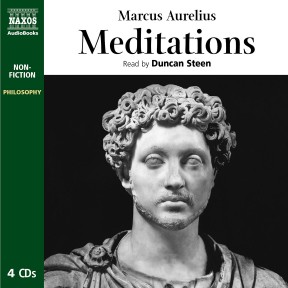The NAB Blog
Stoicism in The Age of Anxiety – The Meditations of Marcus Aurelius
By Anthony Anderson
8 July 2020
In 1947 W.H. Auden published his eclogue The Age of Anxiety, which went on to win the Pulitzer Prize in the following year. The poem is essentially pessimistic, suggesting that man’s ambition to find his identity in a rapidly changing world is doomed to be in vain. However, the poem’s title has almost become an everyday description of our current world.
Part of the human condition is the search for happiness which often seems like an uphill struggle. Unsurprisingly many go back to what is on offer from ancient philosophy. And of these philosophies it is Stoicism that has grown in popularity over the past decade or more. In a nutshell, this philosophy suggests we should concentrate on what we can control, and not be perturbed by that which we can’t.
Living in a time of global pandemic… a Stoic approach seems as appealing as ever
The three best-known Stoic writers were Epictetus, Seneca and Marcus Aurelius. All three focussed on the attainment of a rational mental state, with a studied indifference to chaotic or disastrous events which may happen in the world – as we cannot influence them.
Living in a time of global pandemic – with its concomitant tragedy for many – a Stoic approach seems as appealing as ever. We should simply focus on how we think about the world and what happens in it. Epictetus (who died in AD 135) in his Stoic manual, the Encheiridion, advises that events are neutral but it is our perspective that introduces an emotional response to them. And from these responses come anxiety and unhappiness.
On the one hand, Epictetus argues, we have control over almost nothing; on the other, we have complete control over our happiness by how we see and judge the world.
That sounds all well and good in theory, but let us go back eighty years to the time of the Emperor Nero and Seneca. One-time tutor to Nero, Seneca was a leading exponent of Stoicism and advised various practices including taking stock at the end of each day and reviewing emotional responses, with a view to improving the next day. Seneca was forced to commit suicide after having been accused in a plot to overthrow the Emperor – presumably seen as an event outside his control, but it is hard to believe he faced it completely without emotion.
 Marcus Aurelius was, in some respects, the embodiment of the Platonic ideal of the philosopher-king. As Emperor he knew that he would encounter a good number of irritable, stressed and ungrateful people each day. He prepared himself for that so that he would be less likely to respond with similar emotion himself. We have his Meditations and he expresses this idea thus: ‘The evil that men do harms you only if you do evil in response.’
Marcus Aurelius was, in some respects, the embodiment of the Platonic ideal of the philosopher-king. As Emperor he knew that he would encounter a good number of irritable, stressed and ungrateful people each day. He prepared himself for that so that he would be less likely to respond with similar emotion himself. We have his Meditations and he expresses this idea thus: ‘The evil that men do harms you only if you do evil in response.’
Additionally his view was that nobody was intentionally stressed or unhappy – but that such people were victims of their own outlook. Another view adopted by Marcus Aurelius is that each of us is insignificant in the context of the vastness of the world… Given that, how can we expect things to go our way? And why should we be upset by that?
‘Let not future things disturb you, for you will come to them, if it shall be necessary, having with you the same reason which you now use for present things.’
Moving forward to the present day, the Calm app is one of the most popular smartphone apps in the market. Although its primary approach is mindfulness-based meditation, there is something in common with the attitude of the Stoics in the self-examination and almost emotional cocooning of the individual from the outside world. Interestingly, the app has recently added a new module, ‘Stoic Wisdom for Modern Life’. One can almost imagine Lucius Annaeus Seneca plugged into his smartphone as the chaos of the unhinged Nero’s Domus Aurea raged around him.
« Previous entry • Latest Entry • The NAB Blog Archive • Next entry »